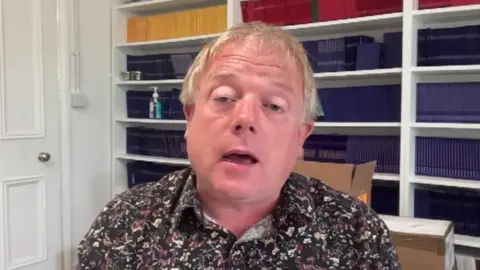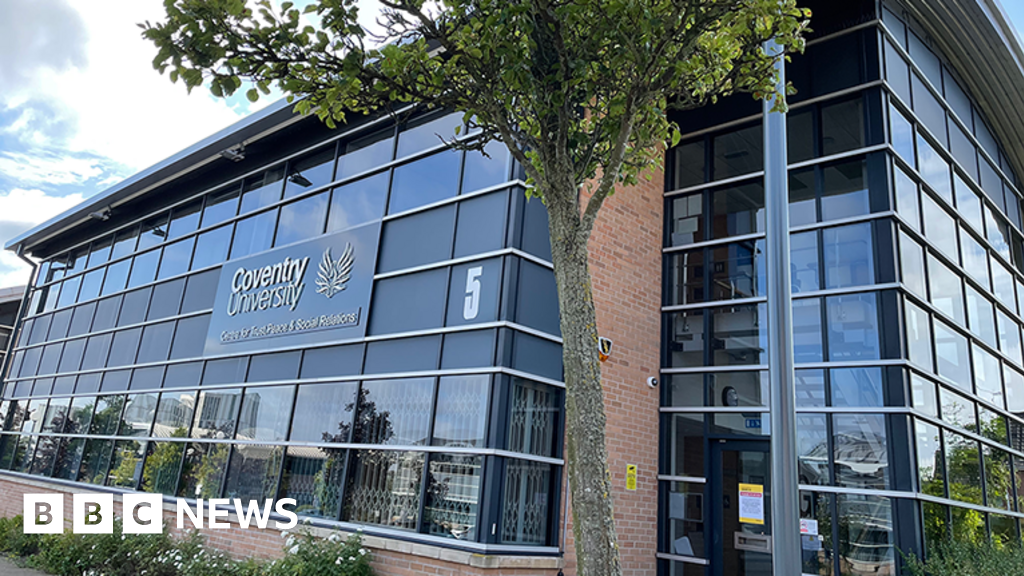 Coventry University
Coventry UniversitySeven jobs will be cut at Coventry University following a review into its Centre for Peace and Security.
The centre contributes to work on human security, peace studies and social relations, which “make a meaningful difference to people’s lives”, the university said.
It announced last December it would need to make “difficult decisions” amid nearly £100m of cuts.
A university spokesperson said it would continue to invest in the research facility’s work but refocus on areas of international importance.
They described peace and security “as among the biggest challenges facing society today”.
“The outcome of the review is to build critical mass and focus in areas of significant international importance, so that our research in peace and security can maximise the impact that it has,” the spokesperson said.
“We are now supporting affected colleagues in a number of ways, including redeployment where possible.”
Earlier this year, the university’s vice-chancellor Prof John Latham warned a clampdown on visas for international students meant it was having to accelerate a move to teaching abroad.
‘Onslaught of restructuring’
Reacting to the job losses, the University and College Union (UCU) said some accomplished academic research staff would be “forced out” and described it as a “quantity and not quality” approach.
A spokesperson said: “This latest set of redundancies forms just a part of an onslaught of restructuring across the [Coventry University] Group to address its debt crisis.
“For a number of years, it has been prolifically implementing a programme of subsidiarisation, which has seen increasing numbers of wholly owned subsidiaries pop up and university staff transferred to them on worse terms and conditions.”
“Despite a number of meetings with senior managers at the university, UCU has not been able to get to the bottom of the level and nature of the group’s debt and their plans to address it.”

The director of the Higher Education Policy Institute said UK universities faced “a hugely challenging time”.
Nick Hillman said many were dealing with increased costs and expectations, despite tuition fees barely rising in a decade.
“Universities are having to do more with much less,” he said, adding that financial pressures had been exacerbated by a reduction in the number of international students, following the introduction of new rules around bringing family to the UK by the previous government.
Mr Hillman added newer universities founded in the 1960s and “less prestigious” centres were “struggling the most”.
“I wouldn’t be entirely shocked if a major or a small university went bust at some point in the next couple of years,” he said.


